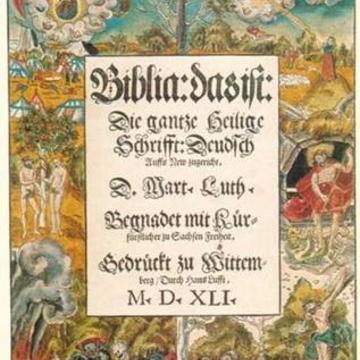Found in Translation Interpreting Reworking and Reinventing Texts

Read a conference report here.
Greene's Institute is delighted to announce our inaugural conference "Found in Translation: Interpreting, Reworking, and Reinventing Texts".
It is universally recognised that in translating a text from one medium to another, or from one language to another, we encounter translation loss. Nevertheless, as Octavio Paz puts it, ‘each translation is a creation and thus constitutes a unique text’: a work that reveals the artistic and technical skills of the translator, is crafted for a specific audience, and sheds light on the context of its composition.
What, therefore, is found in translation, and who finds it?
Translations of key religious or political texts become battlegrounds for heated debate, while many classics reach far larger audiences in translation than they ever reached in their original form. Emma Campbell and Robert Mills suggest that the study of medieval translatio studii et imperii is inevitably the study of ethics and politics - what, therefore, do we discover (or uncover) when we excavate the ideological layers of translated works, and how does this change over time?
This conference seeks to consider what is found in translation across a broad chronology in the medieval, renaissance, and modern worlds.
Alongside our conference on 19th October, Greene's Institute will be hosting our first public event: a special interactive keynote with Professor Henrike Lähnemann (University of Oxford):
The German Reformation would have not been possible without Luther’s translation of the Bible. The impact both the actual translation and the literature surrounding it had, went beyond the religious movement. It has influenced literature, culture and politics – and later translations across European languages. This talk will examine the claim Luther made in his Open Letter on Translation that true translation can only be achieved when letting go of the letters.
The talk will include some practical translation exercises, so participants are encouraged to bring along a Bible, preferably in a non-English edition or in a non-standard translation. To prepare for the talk, an advance reading of the Open Letter on Translation in the open access edition with the commentary by Howard Jones is recommended: https://editions.mml.ox.ac.uk/editions/sendbrief/
More on this and on the ‘Open Letter on Translation' by Martin Luther as part of the “Remembering the Reformation” project in Oxford cf. https://editions.mml.ox.ac.uk/topics/reformation.shtml
This event promises to be a fantastic exploration of one of the most important acts of translation in European history. Full programme is available here: https://greenes.institute/confprogramme.php
Admission to the conference is free of charge, however space is very limited so please contact us at daniel.gerrard@greenes.institute to register to attend if you are not due to present a paper.
Found in Translation: Conference Programme
|
Lower Seminar Room |
Middle Seminar Room |
|
|
08:45-09:00 |
Welcome |
|
|
09:00-10:00 |
Translating Icelandic Sagas (Chair: Pink, S.) 9:00: McMahon, B. Speech-Wrangling: Shutting Up and Shutting Out the Oral Tradition in Some Icelandic Saga Manuscripts 9:20: Sverdlov, I. “What part of Eyjafjallajökull don’t you understand”: the adventures in translation of Icelandic compound (place-)names |
Classics A (Chair: Bär, S.) 9:00: Prosperi, V. The Vernacular Iliads of the Italian Renaissance. The Reasons of a Collective Failure 9:20: Messenger, J. Translation and the Ethical Life |
|
10:00-10:20 |
Tea/Coffee |
Tea/Coffee |
|
10:20-11:40 |
Translating Holy Women (Chair/Respondent: Denissen, D.) 10:20: Dresvina, J. Margery, misericords, and memes: multimedia medieval story-telling through words and images 10:40: Perk, G. Translate, and Ye Shall Find: Liturgical Translatio in Modern Devout Sister-Books 11:00: Vloerbergs, S. Lutgard-Is. Body to Body via a Queer Academic Transmission |
Translating and Re-imagining (Chair: Ozbek, L.) 10:20: Bär, S. When Dada Translates Homer: Raoul Schrott’s German Iliad between Philology and Creative Rewriting 10:40: Walker-Meikle, K. Lions, bears, and badgers, oh my!: Translating animals from Arabic manāfi texts into Latin 11:00: Blud, V. English, Intelligent, and Gayer than a Treeful of Monkeys on Nitrous Oxide”: Good Omens' Queer Love Story |
|
11:40-12:00 |
Tea/Coffee |
Tea/Coffee |
|
12:00-13:00 |
Keynote: Professor Henrike Lähnemann Letting Go of the Letters: The Impact of Luther’s Bible Translation in Germany and Beyond |
|
|
13:00-13:40 |
Lunch |
Lunch |
|
13:40-15:00 |
Classics B (Translating Classical Drama) (Chair: McMahon, B.) 13:40: Ryan, C. Reading and translating Sophocles in sixteenth-century Europe 14:00: Ozbek, L. and Morosi, F. Sophocles for the Stage: Finding New Words for Ancient Drama 14:20: Förster, J. Translation despite stereotypes |
Translation and Modernity (Chair: Sverdlov, I.) 13:40 Artamonova, M. Regaining Meanings: Victorian England Seen Twice through Russian Eyes 14:00 Iglesias Rogers, G. Translations in the Hispanic Anglosphere (late 18th-early 20th centuries) 14:20: de Brose, R. Translation as Tikkun Olam: a conceptual metaphor in Benjamin’s theory of translation |
|
15:00-15:20 |
Tea/Coffee |
Tea/Coffee |
|
15:20-16:40 |
Translation for the Digital Age (Chair: Iglesias Rogers, G.) 15:20: Dubuisson, B. From Text to Bits: Making the Printed Treaties of a Monk from the 16th Century Understandable to a Computer 15:40: Cole, N. Translating Texts for Digital Processing 16:00: Pink, S. The Digital Translation of Medieval Manuscripts and Emergence of the Super-Archive |
|
|
16:40-17:00 |
Concluding Remarks |
|
|
17:00-18:00 |
Wine Reception |


